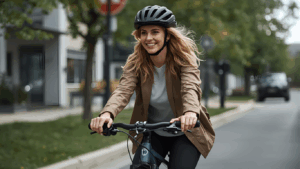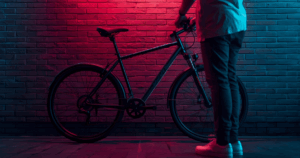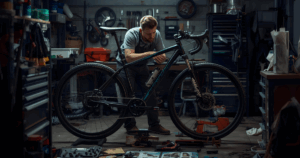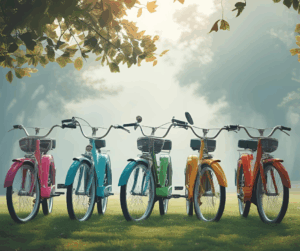Starting your biking adventure in a bustling city can feel exhilarating yet intimidating, especially when urban traffic looms large. Whether you’re commuting to work or simply exploring the concrete jungle on two wheels, understanding how to move safely and efficiently is key. Urban cycling isn’t just about speed — it’s about awareness, strategy, and smart decisions. As more riders embrace this eco-friendly mode of transport, mastering city navigation ensures every biking adventure is a smooth and enjoyable one.
In this guide, we’ll walk you through the essential strategies to thrive on busy roads, make your biking adventure safer, and elevate your confidence while sharing lanes with cars, buses, and fellow cyclists.
1. Choose the Right Bike for Urban Riding
Every biking adventure begins with the right equipment. When it comes to city traffic, the right bike makes a big difference. Urban bikes and e-bikes are often designed with agility and comfort in mind. Look for features such as:
- Lightweight frames for easy maneuvering
- Upright handlebars to maintain good visibility
- Puncture-resistant tires for reliability
- Integrated lights and reflectors for safety
If your biking adventure includes hilly routes or long distances, an e-bike could ease your journey with pedal-assist capabilities — a perfect fit for the stop-and-go nature of city traffic.
2. Learn the Rules of the Road
Before embarking on any biking adventure, familiarize yourself with local traffic laws. Cyclists must often follow the same regulations as motor vehicles, such as stopping at red lights and using designated bike lanes. Key points include:
- Knowing when to yield
- Understanding road signs and signals
- Avoiding pedestrian walkways unless permitted
- Obeying one-way street rules
Being informed keeps your biking adventure legal and helps you earn respect from other road users.
3. Stay Visible at All Times
One of the top challenges of a biking adventure in urban areas is visibility. Cars may not always expect a cyclist, especially in blind spots or during low-light conditions. To stay safe:
- Wear bright or reflective clothing
- Install front and rear lights (even during the day)
- Add reflective tape to your gear and bike frame
- Make eye contact with drivers at intersections
A well-lit and visible cyclist has a much safer biking adventure than one who blends into the background.
4. Be Predictable and Signal Clearly
Smooth navigation through traffic requires predictability. Sudden movements can lead to accidents, especially when drivers aren’t anticipating your actions. During your biking adventure:
- Signal turns and lane changes with hand gestures
- Ride in a straight line when possible
- Avoid weaving in and out of parked cars
- Use your bell to alert pedestrians
Communication is crucial in ensuring that your biking adventure remains accident-free and stress-free.
5. Use Bike Lanes and Shared Paths Wisely
Many cities now offer designated bike lanes or shared-use paths. These are a treasure trove for any urban biking adventure. When using them:
- Stick to the right lane and overtake on the left
- Watch for pedestrians, especially at crossings
- Yield to slower traffic when necessary
- Be mindful of scooters and delivery riders sharing the path
Taking advantage of dedicated infrastructure makes your biking adventure more enjoyable and efficient.
6. Master the Art of Defensive Riding
No matter how careful you are, unpredictable situations can arise. Defensive riding is a survival skill for every biking adventure. Stay alert and:
- Anticipate vehicle movements
- Keep a safe distance from cars
- Be cautious around parked vehicles (to avoid getting “doored”)
- Avoid riding in blind spots of trucks and buses
Your biking adventure should be driven by caution, not confrontation.
7. Optimize Your Route
Not all roads are equal when it comes to biking. Plan your biking adventure by selecting routes that:
- Have lower traffic volume
- Offer bike-friendly infrastructure
- Avoid narrow lanes or heavy intersections
- Pass through parks or quiet neighborhoods
Apps like Google Maps, Komoot, and Ride with GPS have cycling modes to help you craft the most optimal biking adventure route.
8. Equip Yourself with the Right Gear
Apart from your bike, what you carry impacts your biking adventure. Urban cyclists should have:
- Helmet for safety
- Phone mount for navigation
- Backpack or pannier for carrying essentials
- Lock to secure your bike when parked
- Portable repair kit in case of flats or minor issues
Being prepared means your biking adventure won’t be disrupted by avoidable setbacks.
9. Time Your Rides Strategically
Timing can make or break a biking adventure. Rush hour traffic adds stress and danger to your ride. If possible:
- Ride before 8 AM or after 6 PM to avoid peak hours
- On weekends, start early morning to enjoy quieter streets
- Monitor weather conditions in advance
Strategic timing ensures your biking adventure is both peaceful and productive.
10. Practice Urban Riding Techniques
Practice makes perfect, especially for a biking adventure in traffic. Develop habits like:
- Track stands for balance at stoplights
- Quick shoulder checks before turning
- Braking techniques for wet or downhill surfaces
- Smooth gear shifting in varied terrains
The more skilled you become, the more enjoyable your biking adventure gets with each ride.
11. Stay Mentally and Physically Engaged
Urban cycling is mentally stimulating. You’ll need to stay sharp throughout your cycling adventure. Stay alert by:
- Avoiding headphones or distractions
- Keeping hydrated during long rides
- Doing warm-ups and cool-downs before and after
- Taking breaks when needed
Both your mind and body should be in sync for a successful biking adventure.
12. Respect Other Road Users
Respect is a two-way street. For your biking adventure to be harmonious, remember:
- Give space to pedestrians and fellow cyclists
- Avoid aggressive riding even if provoked
- Acknowledge courteous drivers with a nod or wave
- Be patient at congested intersections
Good vibes make for a great cycling adventure and improve the community experience for everyone.
13. Know When to Walk Your Bike
Sometimes the safest thing to do is dismount. During your cycling adventure:
- Walk your bike on crowded sidewalks
- Cross large intersections on foot if unsure
- Carry it briefly in non-bike-friendly areas
Being flexible in your cycling adventure choices keeps you safe and respectful of others.
14. Embrace Technology and Community
Today’s biking adventure can be powered by more than just your legs. Join online cycling groups or use apps to:
- Track your routes and mileage
- Get safety alerts and route updates
- Join group rides to improve your skills
- Find local service stations or cafes
Sharing your biking adventure with a community keeps motivation high and knowledge flowing.
15. Celebrate the Freedom of Urban Cycling
Despite its challenges, the freedom that comes with every cycling adventure in a city is unmatched. You bypass traffic jams, lower your carbon footprint, improve your fitness, and explore new places. Every turn you make, every street you cross, becomes a moment of personal triumph.
A biking adventure isn’t just transportation — it’s a lifestyle that connects you with your environment in real time.
Conclusion
Navigating urban traffic on a bike may seem daunting at first, but with preparation, patience, and the right mindset, it becomes a deeply rewarding biking adventure. From choosing the right bike and understanding road etiquette to embracing technology and riding defensively, every element plays a role in shaping your journey.
As cities continue to invest in cycling infrastructure and more people turn to two wheels, there’s never been a better time to start your own biking adventure. Whether you’re a seasoned cyclist or a first-timer, urban cycling opens up a new world of freedom, sustainability, and self-discovery — one pedal at a time.
So gear up, stay alert, and ride confidently into your next cycling adventure. The city is yours to explore.





